Animated Edition - Spring/Summer 2019
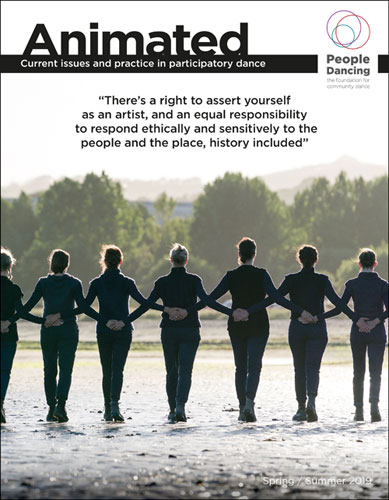
Rest of World Price:
£11.50
|
|
* All prices include delivery
Focus on: Democracy, education and sustainability
This edition of Animated is a little different. We are thrilled to work with Liverpool Hope University (LHU) and Merseyside Dance Initiative (MDI) to bring you a special focus stemming from Our Dance Democracy. This conference, held in November 2018 as part of MDI’s Leap Festival, focused on dance, performance, culture and civic democracy.
The two largest democratic exercises in the world - the general election in India and the EU elections have just taken place. It’s an interesting moment in time to consider what ‘democracy’ means. Tune in to the news or social media and you might be forgiven for thinking that the term has been hijacked by a few people with loud voices shouting about ‘democratic rights’, no matter how dubious or outright nefarious their intentions.
Not so at the conference, or in Animated. We feature contributions from some of the people who presented at the conference, each with their own unique and vital take on the conference themes, from big picture thinking to some drilled down enquiries. Special thanks to Dr Sarah Black, Dance Lecturer at LHU and Karen Gallagher MBE, former Artistic Director at MDI. Sarah and Karen offer their own introduction below.
But we have three other articles for you to read before you get there:
There is much debate about the priority,
or lack of, given to arts subjects in schools, especially (though not exclusively) in England.
Dance education specialist Claire Pring tells us why she’s worried about a decline in dance in primary schools, and shares some ideas about making changes. Meanwhile, in April 2019, the
Arts Council of Wales welcomed the new National Curriculum for Wales that, says Diane Hebb,
Director of Engagement and Participation “so closely reflects the Arts Council of Wales’ and
Welsh Government creative learning through the arts programme – in operation since 2015”. There are lessons to be learnt here, perhaps.
Performer, writer and lecturer Funmi Adewole
offers some personal reflections on the concept of ‘community’ and ‘professional’ dance, exploring
definitions, practice and sustainability, with particular reference to dance of the African Diaspora.
balletLORENT have featured community casts in their work for 25 years. James MacGillvray,
Education and Projects Manager unpacks the company’s approach to incorporating the voices
of communities into their artistic programme.
We publish Animated in Spring and Autumn each year, together with a rolling Blog on People Dancing’s website. Both feature material that we
commission, and articles submitted to us. If you have something you’d like to contribute please let us know, and we can work with you to help make that happen.
Chris Stenton, Executive Director, People Dancing
chris@communitydance.org.uk
In this issue
web.jpg)
Based in Derbyshire, dance education specialist Claire Pring believes dance is at the heart of a
healthy school system and we should do whatever we can to support it
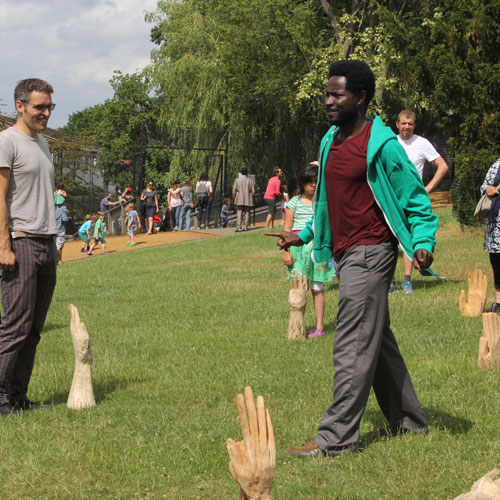
Performer, writer and lecturer, Funmi Adewole, talks about sustainability of practice, the concept of ‘community’ and how the way we think about what we do helps us to develop and direct our practice. Does consciously thinking about how we define ‘community’ enable the practitioner to have a more flexible and sustainable attitude to working in dance and therefore a greater impact?
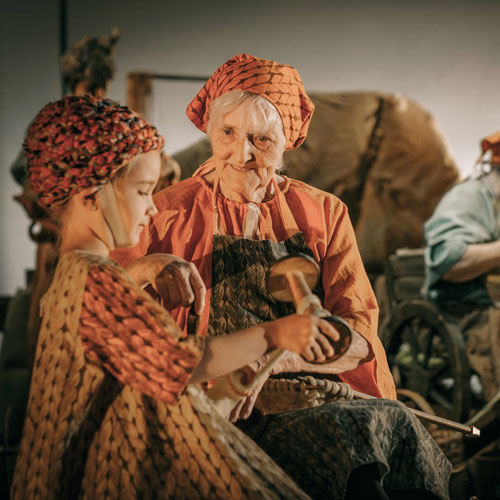
balletLORENT’s Founder and Artistic Director, Liv Lorent MBE and the company have worked for over 25 years to incorporate the voices of communities into their artistic programme by collaborating with diverse groups and individuals from all over the UK. Here, James MacGillivray, Education and Projects Manager, unpacks this crucial relationship
Our Dance Democracy
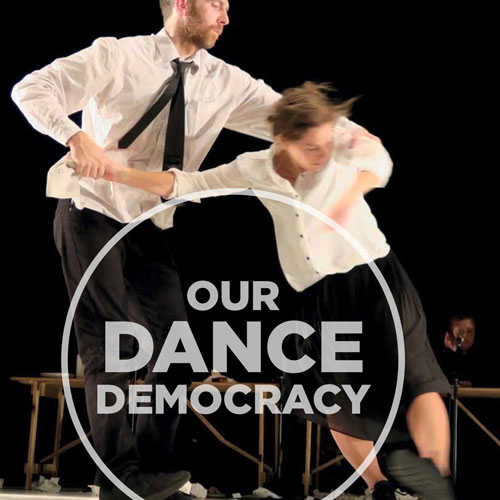
ODD was Merseyside Dance Initiative (MDI) and Liverpool Hope University's (LHU) conference focusing on Dance, Performance, Culture and Civic Democracy. Here, conference organiser’s, Dr Sarah Black and Karen Gallagher MBE, introduce the following articles which are contributed by some of its speakers

Victor Merriman, Professor of Critical Performance Studies at Edge Hill University, Lancashire established the Performance and Civic Futures Research Group in 2013, so as to contest Britain’s
disabling deficit culture, and investigate democratic alternatives to austerity. His ongoing work is concerned with drama, democracy-building, and a political economy of human flourishing
WEB.jpg)
Charlotte Vincent, choreographer and Artistic Director of Vincent Dance Theatre (VDT) makes
‘crucial performance for the critical times in which we live’. She works with an intergenerational,
diverse ensemble on stage, on film and online, with the intention of ‘moving people and making them think’. VDT’s productions make significant claims for gender politics, and increasingly for social
change. Here is a short excerpt of Vincent’s keynote presentation at LEAP 2018

Dr Fiona Bannon is senior lecturer at the University of Leeds and Chair of DanceHE. This article shares passages from her recent publication Considering Ethics in Dance, Theatre and Performance arguing for the inherent value of dance as a route to learning through bodily motion, suggesting it is here that we learn from the centre of our existence in the world
WEB.jpg)
Rosemary Lee was invited to Derry in 2012 by Echo Echo Dance Theatre Company to discuss their commissioning of her to create a large-scale participatory dance project to be performed during Derry/Londonderry’s year as European City of Culture (2013). Her keynote lecture and film
presentation described the creative process, and considered issues of ownership, the role of the artist/outsider, access, and social outcomes among participants and visitors to the installation. Here she discusses her work interviewed by fellow keynote speaker Professor Victor Merriman

Based in North Wales, Independent Dance Artist, Angharad Harrop, addresses the role dance can play in providing opportunities for young people and families to use and learn Welsh outside the classroom

Political geographer Giselle Eugenia Connell discusses her interests in geopolitics, post-colonialism and performance of the body
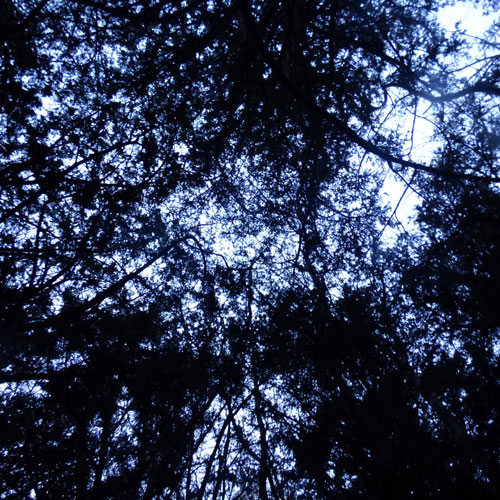
Dance artist and PhD Candidate at Lancaster University Ellen Jeffrey talks about her movement
practice that takes place outdoors at night, where she moves with and within an unpolluted night-time darkness
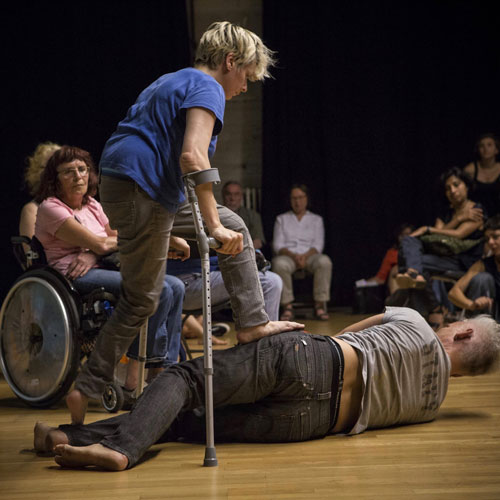
Dramaturg, writer and curator Ruth Little discusses the act of ‘thresholding’ within an expanded
movement practice, exploring the potential of the threshold as a place in-between, of suspension
before transformation. As she identifies in her paper – dance is an enquiry into how things can change